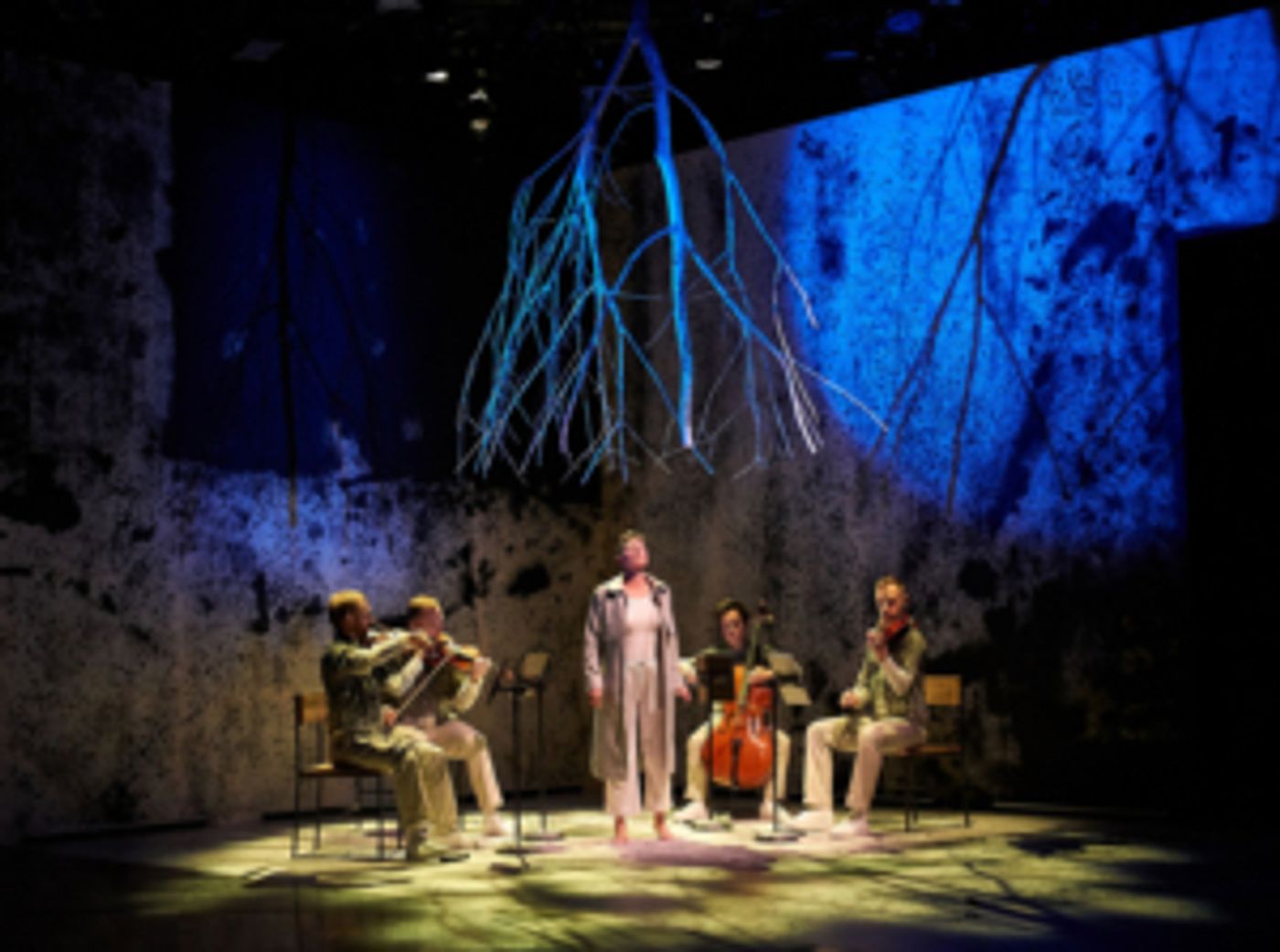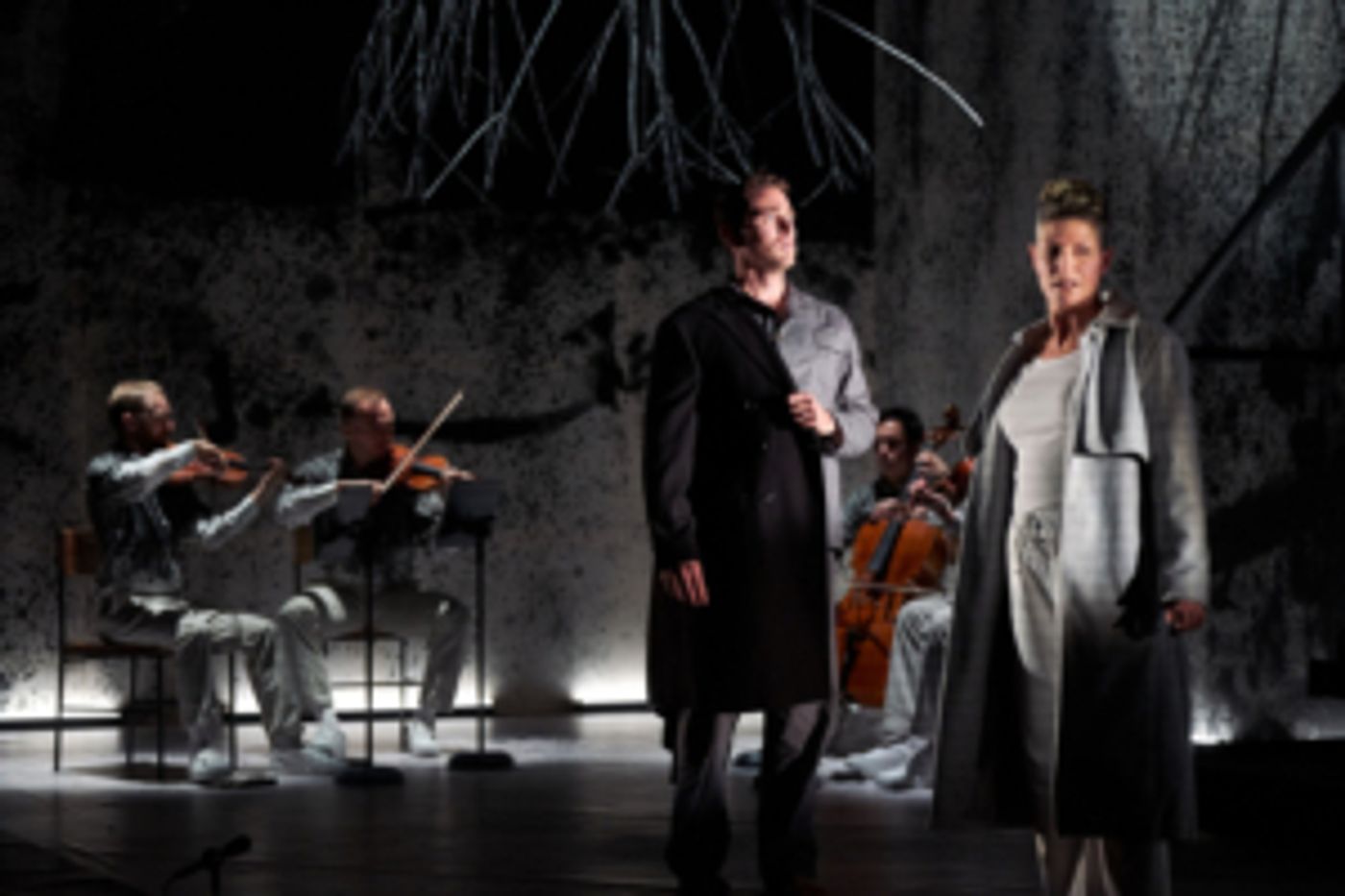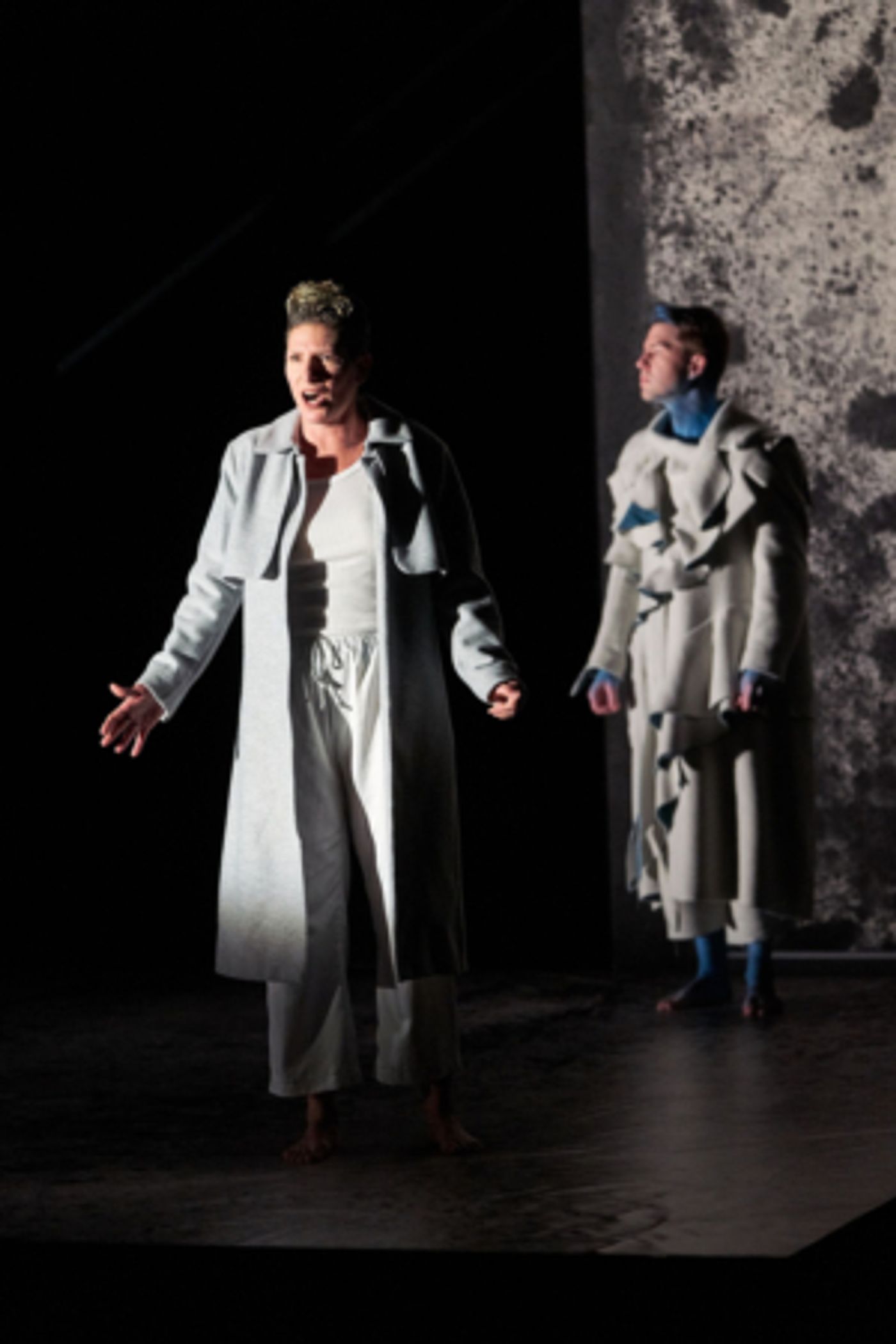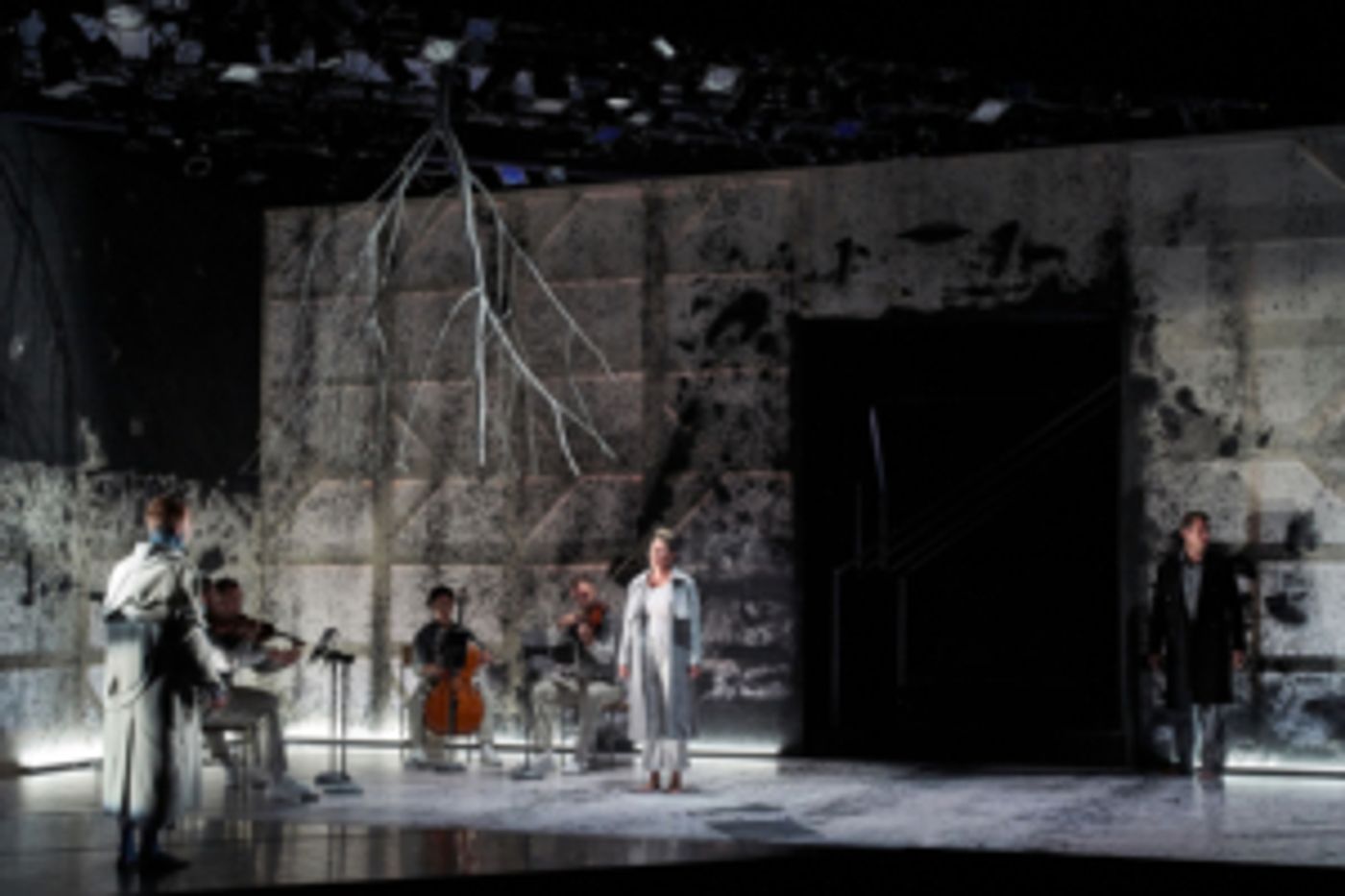Review: Giving in to Hannah Lash's DESIRE at Columbia's Miller Theatre

Quartet. Photo: Rob Davidson
Let me not be accused of mansplaining in writing about this (clearly feminist) opera. But as a member of the audience at the world premiere of Hannah Lash's DESIRE at Columbia University's Miller Theatre, I feel invited to do so, even if the composer/librettist spells out her intentions clearly in the program.
It's easy to give yourself over to the music--and the musicians who perform it--that Lash has created (both music and libretto) from the very first notes of the devastatingly beautiful score.

Sollek. Photo: Rob Davidson
It is performed by three bold singers--the commanding mezzo Kirsten Sollek (Woman), the determined baritone Christopher Dylan Herbert (Man 2) and the eerie yet forceful countertenor Daniel Moody (Man 1).
In addition--and very much integral to its success--there is the dazzling string quartet known as JACK (Christopher Otto and Justin Wulliman, violins; John Pickford Richards, viola; and Jay Campbell, cello). Surprisingly and successfully, there is no conductor.

Photo: Rob Davidson
While I can't say that I felt the libretto (developed with dramaturg Cori Ellison) was anywhere the equal of the music, it provided a synopsis of what (and who) has gone where.
The hour-long work starts as the woman, the artist, awakens and begins her journey for control of her creative process. She leaves her bed and Man 1, which are swallowed into the set, and enters a garden that was not there before.
First, it is black-and-white, then it gradually adds color. Even when the score turns dissonant, it holds you in its grasp and won't let you escape. When it turns watery, there is a hint of Debussy's PELLEAS (which Lash admires).
As I mentioned earlier, the opera--which lasts only about an hour--has a distinctly feminist point of view, with the tug of war between two men for control of the artist's creative process. Both say, "I am hers, she is mine," to prove she is their equal, but we have the feeling that it is the latter part of the statement that is the truer one.
On one side is Man 1, her husband/lover, who must be convinced of the existence of the garden the woman has created, because he has never seen it. But even when he enters it, it is as if he has brought root (or is it color?) rot, because nothing that she has been experiencing is as she has described. "You cannot re-enter a dream," he tells her. But she knows that this was no dream.

On the other is the garden itself, the symbol of her journey (as embodied by the countertenor). Even as he leads the way to a place that seems right for her, with which becomes one with it, he begins to pull and try to exert control. Yet, when she asks him (returning with Man 1 and finding little or nothing of what she recalled), Man 2 tells her, yes, now she needs him more, but, "I cannot be here," he answers. (Or, as Cole Porter wrote, "I'm always true to you in my fashion.")
In the end, both want to have her for their own, to exert control that they are not entitled to. She, however, wants to hold the reins on this troika. The only men she has given herself over to, totally, are the quartet composing JACK, who have been there from the creation of the opera and carry out Lash's intentions, thoughtfully, musically, and brilliantly. Why does she permit this? Perhaps the reason is that they only exist because the composer has allowed them to become part of the action.
Rachel Dickstein's direction keeps the otherworldliness of the piece marching toward its inevitable conclusion. I liked Kristen Robinson's scenic design, though I wished that there had been more color in the garden (perhaps because it was unfinished?). Kate Fry's costumes were particularly effective for the garden (Man 2).
This is the third chamber opera with string quartet I've heard this year--the others being Laura Kaminsky-Kim Reed-Mark Campbell's AS ONE and DENIS & KATYA by Philip Venables and Ted Huffman--and it's a surprisingly powerful way of presenting the music of chamber operas like DESIRE. It also helps get these new works out to larger audiences by cutting down the costs of mounting them, whether that is the intention or not.
Reader Reviews
Videos

